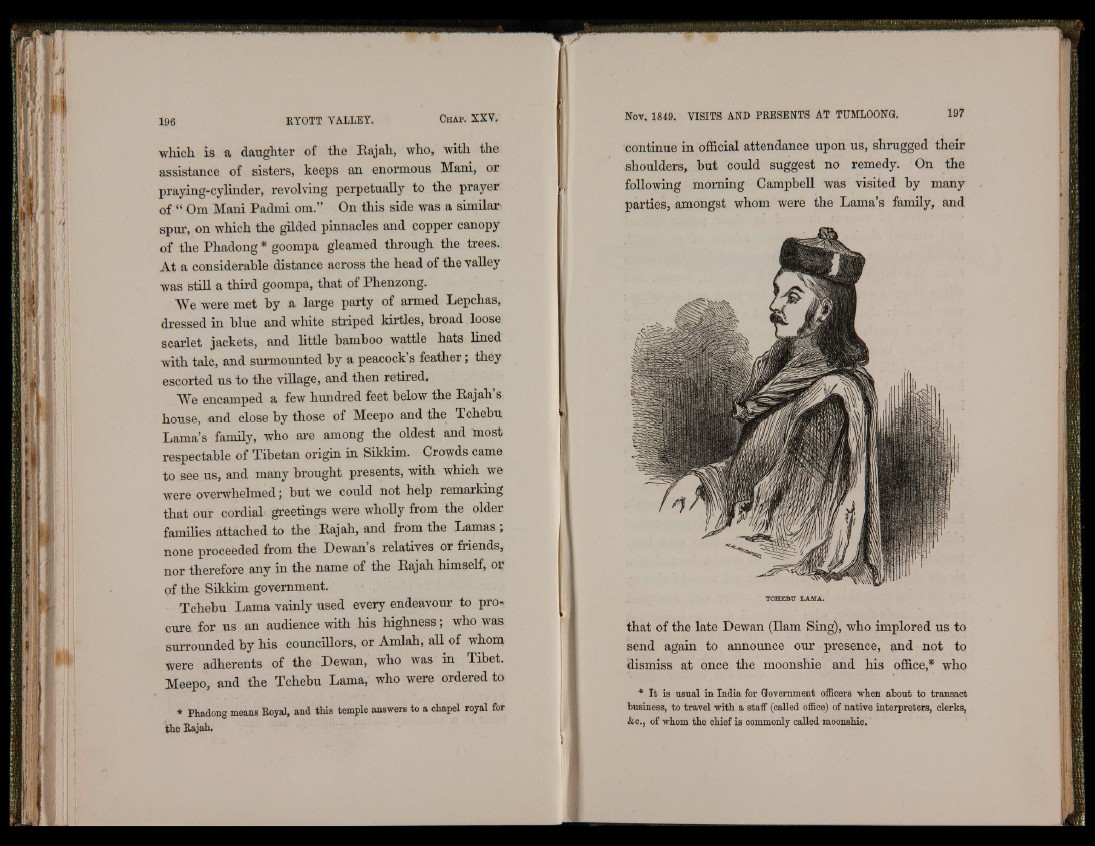
which is a daughter of the Rajah, who, with the
assistance of sisters, keeps an enormous Mam, or
praying-cylinder, revolving perpetually to the prayer
of “ Om Mani Padmi om.” On this side was a similar
spur, on which the gilded pinnacles and copper canopy
of the Phadong516 goompa gleamed through the trees.
At a considerable distance across the head of the valley
was still a third goompa, that of Phenzong.
We were met by a large party of armed Lepchas,
dressed in blue and white striped kirtles, broad loose
scarlet jackets, and little bamboo wattle hats lined
with talc, and surmounted by a peacock s feather; they
escorted us to the village, and then retired,
YVe encamped a few hundred feet below the Rajah s
house, and close by those of Meepo and the Tchebu
Lama’s family, who are among the oldest and most
respectable of Tibetan origin in Sikkim. Crowds came
to see us, and many brought presents, with which we
were overwhelmed; but we could not help remarking
that our cordial greetings were wholly from the older
families attached to the Rajah, and from the Lamas ;
none proceeded from the Dewan’s relatives or friends,
nor therefore any in the name of the Rajah himself, or
of the Sikkim government.
Tchebu Lama vainly used every endeavour to procure
for us an audience with his highness; who was
surrounded by his councillors, or Amlah, all of whom,
were adherents of the Dewan, who was in Tibet.
Meepo, and the Tchebu Lama, who were ordered to
* Phadong means Royal, and this temple answerB to a chapel royal for
the Rajah.
continue in official attendance upon us, shrugged their
shoulders, but could suggest no remedy. On the
following morning Campbell was visited by many
parties, amongst whom were the Lama’s family, and
that of the late Dewan (Ilam Sing), who implored us to
send again to announce our presence, and not to
dismiss at once the moonshie and his office,* who
* It is usual in India for Government officers •when ahout to transact
business, to travel with a staff (called office) of native interpreters, clerks,
Ac., of whom the chief is commonly called moonshie.